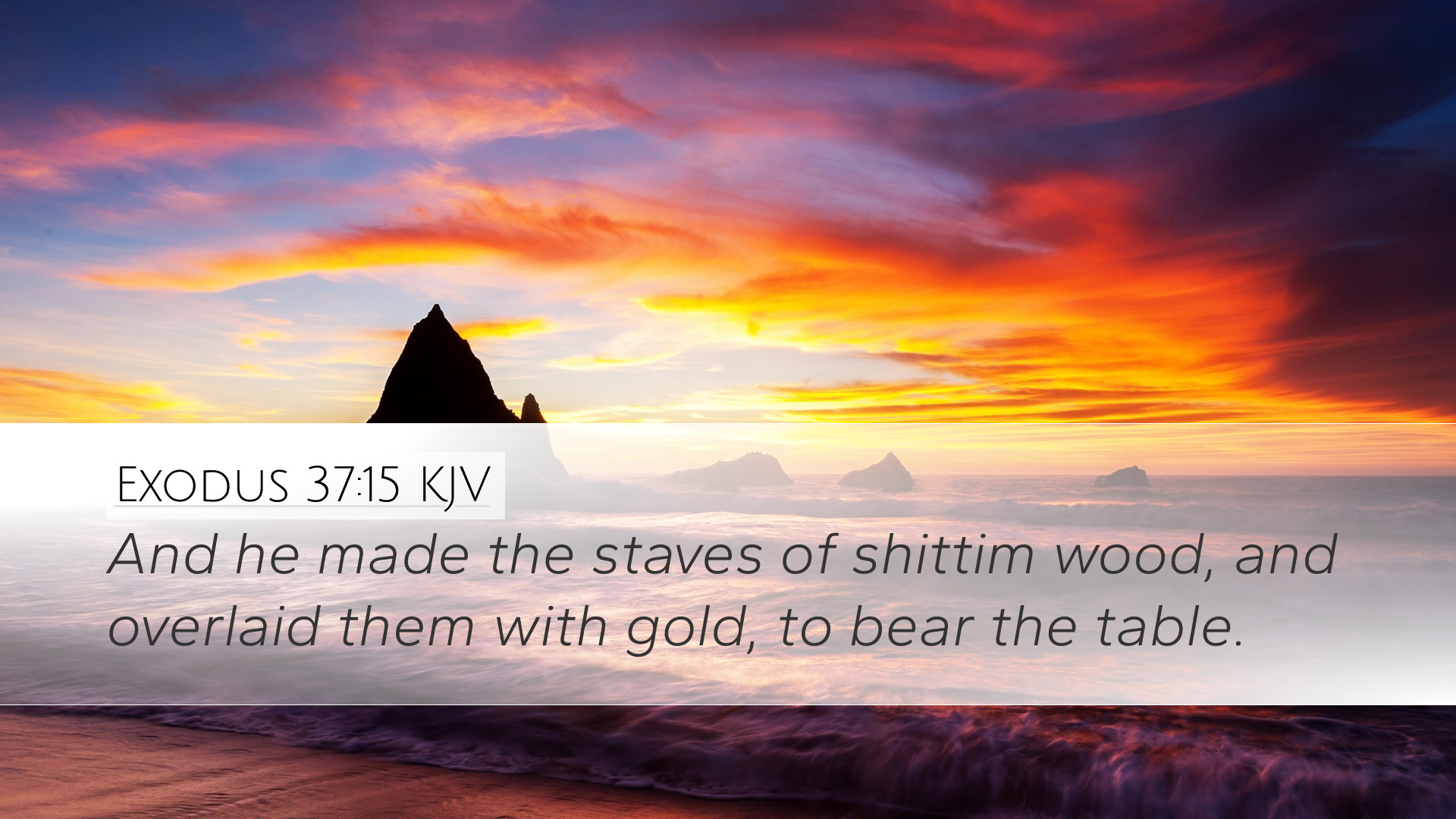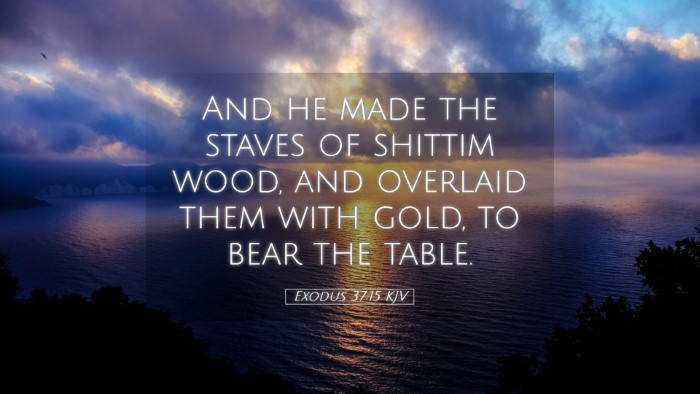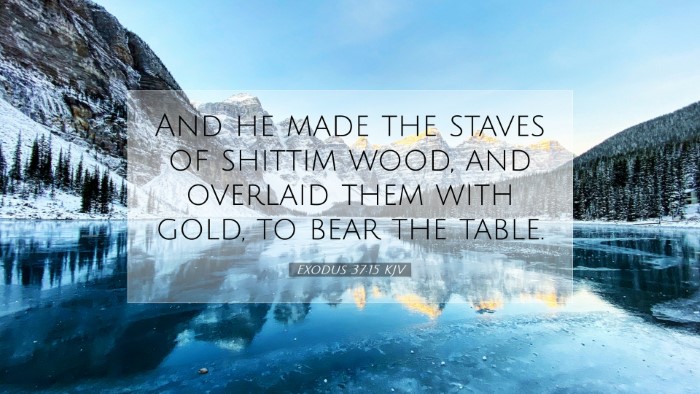Commentary on Exodus 37:15
Exodus 37:15 states, "And he made the staves of shittim wood, and overlaid them with gold."
Introduction
The construction of the tabernacle and its furnishings is filled with symbolism and divine specifications that have deep theological implications. The verse concerning the poles (staves) used for the ark serves as a reminder of the significance of God's presence among His people.
The Significance of Shittim Wood
Shittim wood, also known as acacia wood, was commonly used in the construction of the tabernacle.
-
Durability: Shittim wood is known for its resilience, which symbolizes the enduring nature of God’s covenant.
-
Rarity: This wood was not readily available in Egypt, suggesting that the people had to travel and make sacrifices for the holy items.
-
Spiritual Symbolism: In biblical typology, wood represents humanity, while gold symbolizes divinity. Thus, the combination signifies the meeting of God and man.
The Process of Overlaying with Gold
The act of overlaying the poles with gold serves several purposes:
-
Holiness: Gold is a metal associated with glory, purity, and worthiness, indicating that the way in which God's presence is carried is to be treated with utmost reverence.
-
Preparation for Service: The golden overlay signifies that the poles are consecrated for a divine purpose, preparing them to carry the sacred Ark that housed the tablets of the covenant.
-
Unity of God and Humanity: The poles connecting the wooden structure to the gold overlay symbolize the relationship between the earthly and the heavenly. As Paul writes in Ephesians, we are seated in heavenly places, allowing us to connect the spiritual with the material.
Insights from Matthew Henry
Matthew Henry emphasizes the importance of the poles in providing structural integrity to the Ark, highlighting that these poles are a means by which the Ark can be transported without direct contact, preserving its sanctity. He notes that:
-
The poles represent the perseverance and effort involved in serving God’s presence; they are indispensable, reminding us that our service is not to be taken lightly.
-
The use of gold illustrates that while we must engage with our earthly existence (represented by the shittim wood), our service and approach to God must always reflect His divine glory.
Insights from Albert Barnes
Albert Barnes draws attention to the practical aspect of these poles. He asserts that:
-
The poles serve as a practical means for transporting the Ark, reinforcing the command of God regarding the sacredness of His presence and the procedures surrounding it.
-
The painstaking craftsmanship involved in overlaying with gold serves as a reminder of the dedication required in approaching God’s work.
Insights from Adam Clarke
Adam Clarke focuses extensively on the metaphysical implications of this construction. He elaborates:
-
The act of overlaying the wood with gold signifies the divine transformation of ordinary materials into something holy and set apart, paralleling the believer’s transformation through Christ.
-
Clarke also cites that the poles were a necessary reminder that God’s presence should not only dwell among us but must also be actively carried into all aspects of life, emphasizing our duty to reflect that presence to the world.
Theological Reflections
The combination of shittim wood and gold serves as a profound metaphor for the incarnation of Christ. Just as the poles, combining humanity and divinity, carried the Ark, so too does Christ embody both God and man. This verse invites us into a reflective journey on:
-
The holiness of handling God’s presence in our lives and ministries.
-
Our call to remain dedicated and set apart, as the poles were consecrated for a divine purpose.
-
The responsibility of lifting and carrying God's presence into the world around us, reflective of Jesus' commission to His followers.
Conclusion
Exodus 37:15, while seemingly a mere description of construction, encapsulates deep theological truths essential for understanding the nature of God’s presence among His people. As pastors, theologians, students, and scholars reflect on this verse, may they be inspired to pursue holiness, recognize the transformative power of God, and acknowledge their role in carrying His presence into the world. The study of Scripture invites us not only to interpret but to embody the very principles that elevate His name.


